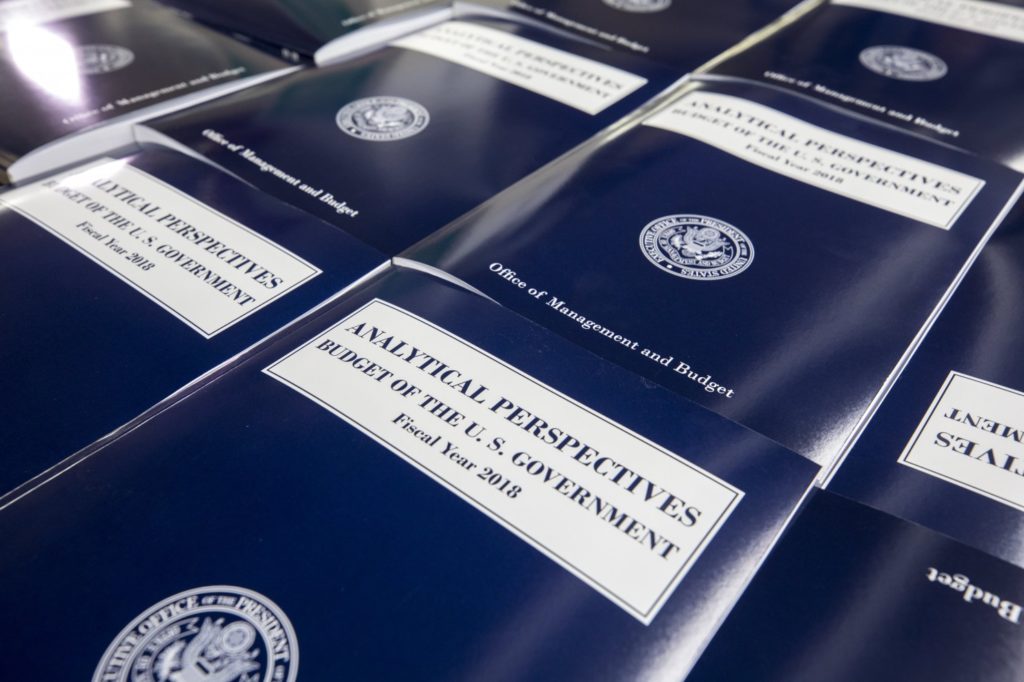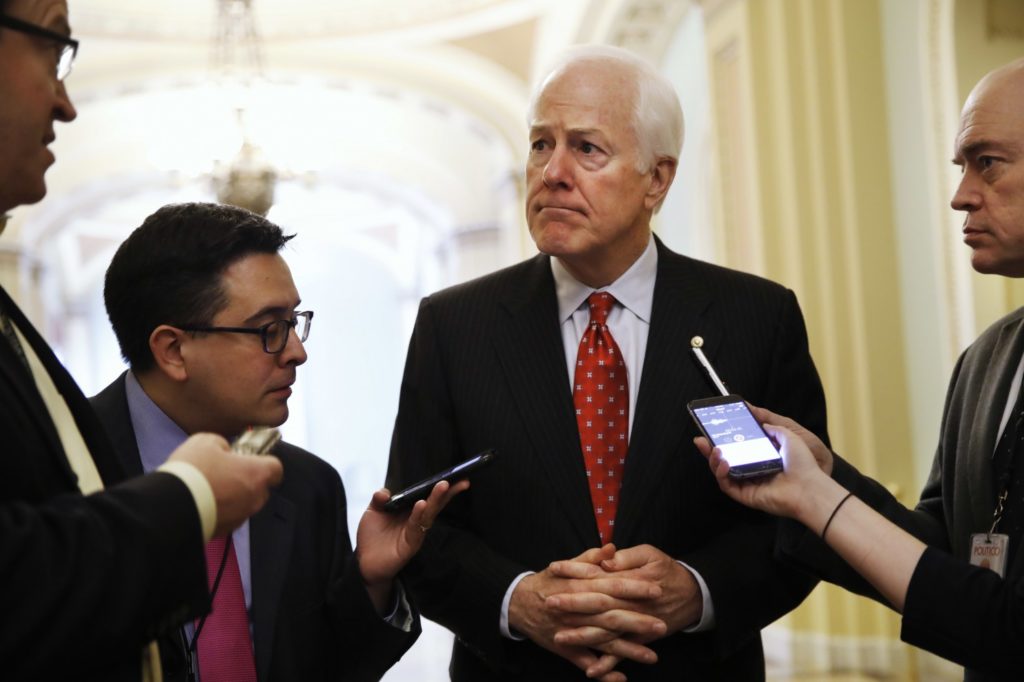Birmingham attorney Jay Mitchell enters Alabama Supreme Court race

Birmingham attorney Jay Mitchell entered the race for Alabama Supreme Court on Monday, seeking the Republican nomination for the Place 4 seat currently held by Associate Justice Jim Main. “The people of Alabama deserve to have justices on the Supreme Court who know the law, will faithfully apply the law as written, and will uphold the Constitution and the principles on which our nation was founded,” Mitchell said in a press release. Mitchell continued, “I have a strong commitment to the rule of law. The people of Alabama deserve to have Justices on the Supreme Court who know the law, will faithfully apply the law as written, and will uphold the Constitution and the principles on which our nation was founded. That is the kind of Justice I will be. If elected, I will serve the people of Alabama with integrity, passion, and fidelity to the law.” An accomplished litigator with the Birmingham firm, Maynard, Cooper & Gale, Mitchell is a graduate of Homewood High School He holds an M.A. from University College Dublin (Ireland) and a B.A. magna cum laude from Birmingham-Southern College, where he graduated Phi Beta Kappa, served as President of the student body, and played forward on the school’s 1995 national championship basketball team. He received his J.D. from the University of Virginia School of Law. According to his bio, he has a long history of involvement with the Republican Party and the conservative movement in Alabama. He is a member of the Federalist Society. Mitchell and his wife, Elizabeth, are longtime members of Church of the Highlands. They reside in Homewood with their four children.
Troy City Councilman Marcus Paramore announces candidacy for House District 89

In a Monday afternoon Facebook post, Troy City Councilman Marcus Paramore announced his candidacy for the Alabama House of Representatives: District 89 seat as Republican. “I’m pleased to announce my candidacy for AL House of Representatives – District 89. Please feel free to share the video and I appreciate all of your support,” Paramore wrote in the post that accompanied a video announcement. “It would be my honor to represent the citizens of the Pike and Dale County, promoting and protecting our conservative values,” Troy said in the video. “I ask for your support and your vote, because together we can make our home a better place to work, worship, and play.” Currently serving in his second term on the City Council, Paramore is also employed at Troy University as the Director of Government Relations. He holds both a Bachelors and Masters degrees from the university. He is married to the former Leigh Ann Steltenpohl of Dothan and is the proud father of two sons, Bradley and Cody, both attend the Troy City School System. They are active members of Park Memorial United Methodist Church. Watch Paramore’s announcement below: Full transcript of Paramore’s announcement: Hello I’m Mark Paramore more this is my wife Leigh Ann and our sons Bradley and Cody. I’m currently serving in my second term on the Troy City Counsel and am proud of the positive economic growth that we’ve experienced in our city. Therefore with much consideration, thoughts, and prayers and with the guidance and council of family and friends, I am pleased to announce my candidacy for the Alabama House of Representative for District 89 as a Republican. It would be my honor to represent the citizens of the Pike and Dale County, promoting and protecting our conservative values. I ask for your support and your vote, because together we can make our home a better place to work, worship, and play. Thank you.
Alabama should be prepared for ‘above-normal’ 2017 hurricane season

With the 2017 hurricane season beginning, Alabama Power employees, the Alabama National Guard and the Alabama Emergency Management Agency have demonstrated they are prepared to respond, if and when they are needed. Alabama Power customers and the rest of the public also should make sure they are ready for the potential of severe storms this summer. Hurricanes can be devastating but being prepared can protect lives and property. (file) The Atlantic hurricane season runs from June 1 through Nov. 30. Forecasters at the National Oceanic and Atmospheric Administration (NOAA) Climate Prediction Center say there’s the potential for an above-normal hurricane season this year. They predict a 70 percent likelihood of 11 to 17 named storms (winds of 39 mph or higher). Five to nine of those storms could become hurricanes (winds of 74 mph or higher), and up to four could become major hurricanes (winds of 111 mph or higher), NOAA officials said. An average season produces 12 named storms, with six becoming hurricanes and three becoming major hurricanes. Of course, it only takes one hurricane making landfall to make it an active season for people in the path of that storm, say hurricane researchers at Colorado State University. They say residents in coastal communities should prepare the same for every season, regardless of how much activity is predicted. Every year, Alabama Power reviews historical data and scientific models as it updates its hurricane plans. Company teams also test their storm plans by conducting drills. Alabama Power employees across the state have reviewed storm plans and have updated the company’s emergency operating procedures. Alabama Power has plans in place for hurricane recovery if and when the big storm happens. (Wynter Byrd / Alabama NewsCenter) “Our major storm response plans are based on scale,” said Steve Kirkham, Distribution general manager for the company’s Mobile Division. “We can ramp up or ramp down our response to meet the respective threat, while working safely and efficiently to restore service to our customers.” The Alabama Emergency Management Agency conducted a statewide hurricane exercise last month that included several government agencies and private sector participants. The Alabama National Guard also conducted its annual hurricane exercise to prepare and test plans. As hurricane season begins, Alabama Power customers should review their storm plans in case of a weather emergency. Here are some safety tips for hurricane season: Before a hurricane strikes: Build an emergency kit, including flashlights, batteries and a first-aid kit. Keep cellphones and electronic devices charged. Have a three-day supply of water and nonperishable food on hand. Make a family communications plan. Learn community hurricane evacuation routes. Determine where your family would meet and how you would get there. Cover your home’s windows and reinforce garage doors. Permanent storm shutters offer the best protection. Otherwise, board up windows with 5/8-inch exterior grade or marine plywood. Make sure trees and shrubs around the home are well-trimmed. Bring in all outdoor furniture, decorations, garbage cans, etc. Keep a battery-operated weather radio to stay informed. Turn down the thermostat to keep your home cool as long as possible. During a hurricane: Seek shelter inside a sturdy building. In a tornado, the safest place is on the lowest level, in a room with no windows. Make sure pets are safe. Turn off propane tanks. Stay tuned to the radio for updates. After the storm: Drive only if necessary and don’t cross flooded roads. Avoid damaged trees. Stay away from downed or hanging power lines. If you see a downed line, call Alabama Power at 1-800-888-APCO (2726). Check your property for gas leaks or structural damage. Take photos for insurance purposes. Avoid climbing on debris, as it may be unsafe or harbor dangerous wildlife. Be cautious about cutting or removing large limbs. Check that electrical wires are not hidden in the brush. Check food for spoilage and check tap water for contamination. For more tips, visit the National Weather Service Hurricane Preparedness Week 2017 website. Hurricanes can be destructive to life in property along the Alabama Gulf Coast. (Wynter Byrd / Alabama NewsCenter) Republished with permission of Alabama NewsCenter.
Taylor Dawson: There’s always next year, right?

It’s baffling when legislators run for office on a platform of limited government and individual liberty and then use their elected office in the Alabama Legislature to defeat legislation that promotes these principles. Legislation supporting school choice and Second Amendment rights suffered this fate this past legislative session. Don’t blame the Democrats. Enough Republicans joined them to defeat amendments to the Alabama Accountability Act, and a Republican committee chairman in the Alabama House scuttled constitutional carry. Changes to the Alabama Accountability Act Parents with children trapped in failing schools did not have a real school-choice option in Alabama prior to 2013. With the passage of the Alabama Accountability Act (AAA), families zoned for Alabama’s worst-performing schools finally had better opportunities through scholarships and tax credits. After a drop of $5.9 million in scholarship donations through the AAA last year, some lawmakers came to this year’s session prepared to remedy the funding problem. Amendments would have improved the law by raising the limit on tax credits that could be claimed for donating to student scholarships, adding a tax credit for utility tax, allowing estates and trusts to donate, and reserving half of the cumulative cap–which would remain unchanged–on donations for individual donors. In February, these amendments passed by a close margin in the Senate. It wasn’t until the last forty-eight hours of the legislative session that SB 123 hit the floor of the House. Getting the bill to the House floor wasn’t an easy task, but education reforms rarely are. Enough legislators were swayed by the voices of public-education superintendents and the Alabama Education Association (AEA) to kill the bill. The AEA makes no bones about its intent to keep education in Alabama just the way they like it–even if it means children trapped in failing public schools. We should give positive education opportunities to all families, not just families who can afford them. The Alabama Accountability Act needs to be strengthened, and it’s certainly worth another try next session. Constitutional Carry The Second Amendment states, “A well regulated Militia, being necessary to the security of a free State, the right of the people to keep and bear Arms, shall not be infringed.” Although the Supreme Court allows certain types of gun-ownership restrictions, a few of our legislators in Montgomery want our rights to be as free and clear of hindrances as possible. Senator Gerald Allen (R-Tuscaloosa) introduced a bill this session that would allow constitutional carry–otherwise known as permitless carry–in Alabama. After receiving “yea” votes from every Republican legislator to easily pass the Senate, SB 24 died in House committee without making it to the floor for a vote. When a public hearing was held for the bill in a House committee several weeks ago, the pro-permit side was represented entirely by law enforcement, but there was one notable dissenter from that side–Jefferson County Sheriff Mike Hale. Sheriff Hale values the rights of many over the fiscal preferences of few. Paying a fee is a burden on our right to bear a firearm. Those who take issue with constitutional carry justify their defense of permits as being pro-public safety rather than anti-Second Amendment. So, if opponents of constitutional carry are going to market their opposition in the name of safety, why is there a cost associated with getting a permit? Our constitutional right to bear a firearm should not come at a price. This bill’s defeat was not at the hands of the law enforcement officers who were against it. Republican House members killed this bill, and the lawmakers in the Senate who passed the bill by an overwhelming margin should hold the House members from their party accountable for its defeat. At the very least, constitutional carry deserved a vote on the floor of the Alabama House. Now that the 2017 legislative session is over, let’s hope our lawmakers use this break to think about these policies they rejected and come back to Montgomery in 2018, headed into election season, prepared to stand for the principles they claim to support. ••• Taylor Dawson is Communications Director for the Alabama Policy Institute (API). API is an independent, nonpartisan, nonprofit research and educational organization dedicated to strengthening free enterprise, defending limited government, and championing strong families.
Alabama Maker Revival Coffee has something special brewing in Selma

Ryan Bergeron knew God was leading him to something new. He just never imagined it would be roasting coffee beans. Bergeron said he found Jesus when he was 22 and felt led to do something beyond the construction job he held. After having many doors slammed in his face as he searched, a friend of his was looking to revive downtown Selma and felt like a coffee roaster would be a good business. Bergeron was the first person he thought of to open that business. But Bergeron wasn’t so sure when he was approached about it. “I said I’ll pray about it,” he said. “I don’t know anything about it, though.” After some prayer and contemplation, Bergeron wasn’t feeling led and he also was feeling discouraged. “I started taking small steps towards it and saying, ‘Lord, either shut the doors or open the doors,’” he said. Then doors started opening. Bergeron found out he had a distant relative who was in the coffee roasting business and invited him to come learn more about it. That led to a one-on-one training session with one of the world’s top cuppers – a professional taster who usually only trains large sessions for lots of money. “At the end of training, he said, ‘You know, Ryan, I don’t know what it was that compelled me to do this,’” Bergeron said. “I started laughing and said, ‘That’s Jesus.’” As he was putting together his business plan and getting ready to commit to the business, Bergeron was up one sleepless night and realized he didn’t even have a name for the company. “I said, ‘Lord, I haven’t been creative in 10 years. There hadn’t been a need for me to. I don’t know how to do it,’” Bergeron said. “Right then, it popped into my head. He said, ‘Revival Coffee, awakening a nation.’ I said, ‘Huh. Well, that makes sense with coffee and what coffee does and kind of the heart of revival and the heart of what we’re trying to do.’ So that’s where the name came from.” Bergeron had a plan and a name, but he still had something to overcome: his own fears. He said he spent years working in construction never afraid of some of the more dangerous aspects of that job. But this career change would require different talents. “Picking up the phone and calling somebody and telling them, ‘Hey, I’ve got this wonderful product, do you want to try it?’ It’s amazing the kind of fear that I was faced with,” Bergeron said. “I was like, ‘Lord, I’ve never been afraid of anything as long as I can remember and this has paralyzed me. So, the hardest part of starting was overcoming fear.” Bergeron now looks back on that as one of the reasons behind this career change. “Fear is opposite of who God is because perfect love casts out fear. In overcoming that, I had to encounter the perfect love of Jesus,” Bergeron said. “To anybody who is hearing this, if the thing that is keeping you from pressing forward to your dream is fear, then just press through and overcome it because he has made us to be more than conquerors.” In addition to learning about coffee, Bergeron learned more about himself. “I learned how to tap into the courage I didn’t know I had,” he said. Bergeron has found blending different beans from different countries of origin creates better, more consistent coffee than a single origin coffee bean. Much trial and error went into developing the blends that Revival sells. Even the names of the blends have significance. “The names of the blends, they’re different fruits of revival,” Bergeron said. “There’s an Integrity, there’s a Redemption, there’s a Restoration, there’s a Salvation – and that’s part of the vision of the company is to be able to sow back into different ministries and nonprofit organizations that are doing good.” Ten percent of the sales of each blend benefits a different organization working in an area of need. For instance, those who buy the Integrity blend will help feed children in Africa. Those who buy Redemption will battle human trafficking. Those who purchase Salvation will aid the unborn. Those who buy Restoration will help those struggling with substance abuse. Each purchase on the website is roasted to order and shipped out within a day or two of placing the order. You can also find Revival in some retail outlets and several coffee shops throughout the state. “If your favorite coffee shop doesn’t carry it, then all you’ve got to do is say, ‘Hey, y’all need to check Revival coffees out and try their stuff. I hear it’s pretty good.’ And we will get in there,” Bergeron said. The product: Whole bean and ground coffee in special blends to benefit worthy causes. Take home: A 12-ounce bag of Redemption, $11.95 plus tax and shipping from Revival’s online site. Revival Coffee Company 334-430-4101 info@revivalcoffees.com https://revivalcoffees.com/ Republished with permission of The Associated Press.
University of Alabama robotics team claims third straight victory at NASA competition

For the third consecutive year, a student team at the University of Alabama placed first at a NASA robotics contest. Alabama Astrobotics took the top prize at the NASA Robotic Mining Competition, besting student teams from 45 other institutions in the challenge to build a robot capable of navigating and excavating simulated Martian soil, or regolith. “Winning the NASA Robotic Mining Competition for a third straight year is amazing and humbling,” said team lead Joseph Kabalin, a recent mechanical engineering graduate from Loveland, Ohio. “Our team knows how hard it is to get here and how much work it takes. It was truly a team effort.” The team has more than 60 students from across eight disciplines, including engineering and computer science, and it is the only team to win more than once in the contest’s eight years, placing first four times in 2012, 2015, 2016 and this year. The teams competed at the Kennedy Space Center in Florida. “I am very proud of the team members,” said Dr. Kenneth Ricks, team adviser and associate professor of electrical and computer engineering. “They bought into our process, put their individual needs aside for the good of the team, and dedicated themselves to excellence in every category, which was recognized by the competition judges.” NASA’s Curiosity rover on Mars at “Rocknest,” the spot in Gale Crater where the mission’s first scoop sampling took place. Four scoop scars can be seen in the regolith in front of the rover. A fifth scoop was collected later. The NASA Robotic Mining Competition focuses on related regolith digging operations. (NASA/JPL-Caltech/MSSS) Robots are judged on how much regolith they can dig and deposit into bins as well as their ability to operate on their own, or autonomously. This year, Alabama Astrobotics collected a record amount of regolith, and the robot was the first ever to complete its tasks fully autonomously. The team placed first in five of nine categories that included mining, autonomy, technical presentation, effective use of communication with the robot and outreach project. Alabama Astrobotics placed in the top three of every category, racking up the most points in the contest’s history. In all, the students won $10,000 for use on next year’s robot. The team designed and built a new robot, but stuck with the approach that netted the top prize the past two years. The students improved some of the robot’s mining capabilities, making it lighter and upgrading its ability to operate autonomously, Kabalin said. The robot is called MARTE 2017, which stands for the Modular Autonomous Robotic Terrestrial Excavator 2017, and kept the bucket ladder excavator and an offloading conveyor belt. It also continued to use lidar sensors to scan in 3-D using 16 lasers to measure distance and determine an object’s position. The sensors are a sort of radar that uses light instead of sound. This year the team installed an electronic device called an inertial measurement unit to help make the autonomy more reliable. The technology concepts developed by the collegiate teams for this competition could be used to mine resources on other planets, according to NASA. The team received funding from the Alabama Space Grant Consortium, NASA, Dynetics, Fitz-Thors Engineering, Crank N Chrome, Ion Motion Control, Trailer Store Plus, SolidWorks and the University of Alabama. Republished with permission of Alabama NewsCenter.
Crow has never tasted as good as it does today

Sigh. So there’s this thing hanging out there that I haven’t talked about in a while. A subject that has left me, the woman who occasionally forgets to take a breath when I’m speaking and have a point to make, speechless. I was wrong about something, and I need to admit it: Donald Trump‘s potential effectiveness as President of the United States. Like many people, I didn’t take Donald Trump’s bid for the presidency seriously. I had misgivings about what would happen were he to win the White House. I wasn’t alone in my position; many others shared my skepticism. It was a strategic error of monumental proportions for several of his primary opponents and hopefully a career ender for the Clinton machine. Here we are, though almost six months into his presidency, and he’s given his conservative doubters, including me, a reason to enjoy the crow we’re eating. Good policy doesn’t necessarily make for good headlines. It’s often overlooked. But in politics, what makes headlines is rarely the whole picture (or even the most important thing happening that day). That’s certainly the case for much of Trumps presidency. While the media has focused on unsourced drama and misleading ethical stories, Trump and his team have been working. He’s shown that, despite his inexperience holding office, business sense he constantly touted throughout his campaign, knowing how to put the right people in the right places. And it has mostly worked. I’m not saying he’s had a perfect start, but there have been substantive accomplishments that were underreported or vilified. Congress certainly hasn’t been doing him any favors with its inability to get its act together. It’s as if they didn’t have eight years to sit around and plan and plot for winning back the White House and what they’d accomplish once Obama was gone. By far the most impressive action of the Trump administration has been his appointments. Now I’m going to out myself for the policy nerd I am with this list, but my favorites are: Scott Pruitt at the Environmental Protection Agency, Ryan Zinke at Interior, Mick Mulvaney at OMB, and last but not least Alabama’s own Jeff Sessions as Attorney General. These were bold picks with policy leaders who have already started shaking things up. Obama spent years using every regulatory opportunity to push an agenda that ultimately led to killing jobs, costing taxpayers more money and growing government. The leaders Trump picked are already righting these wrongs, and though you won’t see that on the 6 p.m. news, it’s going to make all the difference in the world. While I’m not a fan of a lot of executive orders, Trump has had some notable ones: Protecting election integrity through a commission to study voter fraud May 11, 2017 Looking for ways to reduce the regulatory tax burden on Americans April 21, 2017 Creating commission to address opioid addictions March 29, 2017 Promoting energy independence March 28, 2017 Reducing regulations January 30, 2017 I feel like the spirit of his executive orders frequently cross party lines to help American businesses and families across the board. Finally, I’ve got to say yesterday was another good day for news coming out of the White House. It was also another Trump promise kept that leaves me hopeful for the policy direction and agenda this administration. In case you’ve been hiding under a rock, what the president did was pull the U.S. out of the Paris treaty accord that we were never really a part. No really. We weren’t. Not constitutionally, anyway. Two-thirds of the U.S. Senate would need to vote for us to join such a substantial agreement, a treaty as it really was, and it was never brought before the Senate. Other countries leaders took the agreement to their respective governments to be ratified, as with a treaty, but not President Obama. Knowing he couldn’t get it past the U.S. Senate, he didn’t even try. As explained in an op-ed by Northwestern University School of Law professor Eugene Kontorovich for The Washington Post: “The universal interpretation of the agreement as a treaty cuts against Obama’s insistence that it is not one. (It is also noteworthy that SOEs for multilateral agreements are themselves almost unheard of, and certainly not for global ones.) A treaty is an international agreement, and in a multilateral treaty, the views of other signatories are at least probative of the question of whether it creates binding obligations upon ratification.” This action, which ultimately showcased a thoughtful approach to governing in which our president put Americans first, signals that more good things are to come. Again, the real work for Congress to take up and pass are issues of substance to send to the White House. In the meantime, watching regulatory reform set in by way of just ending the regulatory attacks from the Obama administration are a great start. So, here’s to pleasant surprises; may Trump and his team keep the policy wins coming. While no, I didn’t take on the work in progress that is the internal conflicts and questions coming out of the Trump administration. That’s a different opinion piece for a different day. Today, I just want to say, my president, our president, is off to a much better start than expected by many — and most certainly a much better start than mainstream media is letting on.
Debt ceiling issue tops summer budget agenda for Congress

Even members of his own party were quick to declare President Donald Trump‘s budget plan dead on arrival in Congress last month. And in fact, lawmakers are facing a burst of overdue budget-related work this summer. Most of what’s on the budget agenda probably won’t bear much resemblance to Trump’s spending plan, which promised deep spending cuts on domestic programs, rapid economic growth, and a balanced federal ledger in a decade. Instead, they’re confronting an increase in the government’s borrowing cap, serious problems in advancing annual spending bills, and a smaller set of curbs on domestic benefit programs A look at what’s ahead: — DEBT DILEMMA Atop the absolute must-do list is raising the borrowing cap, or debt limit. Doing so would avert a disastrous, first-ever default on U.S. obligations. Treasury Secretary Steven Mnuchin says Congress should vote to raise the debt limit before leaving Washington for its traditional August recess. Lawmakers once thought they had until the fall to act. It would be the first increase of Trump’s presidency, and responsibility for passing it falls chiefly upon the Republicans who control Congress. Some conservatives, including White House budget director Mick Mulvaney and the hard-right House Freedom Caucus, want difficult spending cuts paired with the higher cap. If those efforts fail, it’s commonly assumed that GOP leaders would have to enlist support from Democrats to pass the legislation. Republicans secured sweeping spending cuts as the price for a 2011 debt deal with President Barack Obama. But Obama prevailed in demands for a “clean” debt increase in later rounds, most recently in late 2015. House Democratic leader Nancy Pelosi and other top Democrats say they won’t go along with a debt bill if Republicans press ahead with deficit-financed tax cuts for the wealthy. Mnuchin is using a set of accounting maneuvers to keep the government solvent for now. — SPENDING DEADLOCK Congress is way behind on the 12 annual spending bills covering the Pentagon and other federal agencies for the upcoming 2018 budget year. Work on those measures, totaling more than $1.1 trillion, was supposed to begin last month, but Republicans have yet to even unite behind a plan of attack – much less execute it. GOP leaders and the White House must sort through the demands of numerous competing factions, including defense hawks, defenders of domestic spending, and tea party lawmakers. At the same time, they must deal with Democrats, who retain great leverage because their support is needed to advance the legislation. Trump and his allies generally agree on a big increase for the military, but disagree on corresponding cuts to domestic programs and foreign aid. Democrats are opposed to Trump’s cuts – such as those aimed at the Environmental Protection Agency, foreign aid, grants for first responders, economic development and others – and are pressing for domestic increases. A major battle again looms over money for Trump’s oft-promised wall along the Mexican border. A government shutdown can’t be ruled out when the current budget year end Sept. 30. One option: GOP and Democratic leaders forge the outlines of an overall agreement, then advance the 12 appropriations bills in a bipartisan fashion. It’s a challenging compromise to pull off and would disappoint key factions. So far the result has been drift. Some insiders predict the only solution is yet another bill that covers the entire government in one shot, but it might not pass until late this year and that may put some agencies on autopilot. — BUDGET/TAX IMBROGLIO After health care, the next priority for Republicans is overhauling the tax system. But to do that – at least without turning to Democrats for help – would first require the GOP to pass a blueprint known as a budget resolution. Congress cannot wrap up action on the 2018 plan, however, until efforts to repeal the Obama-era health law are complete. That resolution would allow for follow-up legislation on taxes and spending, including a recommended cap on annual appropriations bills. Republicans are eyeing this course as a way to ease passage of a tax overhaul and cuts to benefit programs such as federal employee pensions and food stamps. But the path ahead is tricky. Some defense stalwarts are demanding Pentagon increases greater than Trump’s, and the White House is pushing lower spending for domestic agency operations. There are accounting tricks used in Trump’s budget, but Republicans cannot resort to using them. That could lead to nonbinding but politically symbolic proposals to cut Medicare, a program Trump says he won’t touch. Republished with permission of The Associated Press.
GOP running out of time for legislative achievements

President Donald Trump and his GOP allies on Capitol Hill have made it through nearly half their first year in power without a single major legislative achievement. If that’s going to change, it will have to start soon, a reality that Republican lawmakers will confront when they return to the Capitol on Monday from a weeklong break. “We just need to work harder,” the second-ranking Republican senator, John Cornyn of Texas, said in an interview with KFYO radio in Lubbock, Texas, over the recess. For now, the party’s marquee agenda items remain undone, their fate uncertain. The long-promised effort to overturn former President Barack Obama‘s health law hangs in limbo in the Senate after barely passing the House. A tax overhaul that’s a top Trump priority is unwritten and in dispute, despite his recent claim on Twitter that it’s ahead of schedule. “The president keeps saying the tax bill is moving through Congress. It doesn’t exist,” House Minority Leader Nancy Pelosi, D-Calif., said mockingly on Friday. “It doesn’t exist. There is no tax bill moving through Congress.” Lawmakers will deal with those issues and more as Congress comes back into session, and realistically the window for action is closing fast. Seven legislative weeks are left before Congress scatters for a five-week August recess, a period when lawmakers are likely to lose momentum if they have failed to act on health care or taxes, and face GOP voters frustrated that they haven’t delivered. Both issues are enormously difficult challenges, and the tax legislation must follow, for procedural reasons, passage of a budget, no small task on its own. On top of it all, lawmakers are way behind on the annual spending legislation needed to keep the lights on in government. They were recently informed by Treasury Secretary Steven Mnuchin that they will have to raise the federal government’s borrowing limit before August, a daunting task ripe for brinkmanship. Looming over everything is the investigation into allegations of Russian meddling in the 2016 campaign and connections with the Trump campaign. That investigation is in the hands of a special prosecutor and Congress’ intelligence committees. Former FBI Director James Comey, who was fired by Trump, is scheduled to testify before the Senate committee on Thursday. “The Russia investigation takes a lot of oxygen, it takes a lot of attention,” said Republican Rep. Tom Cole of Oklahoma, a veteran lawmaker. Cole argued that Republicans have not gotten the credit they deserve to date for what they have accomplished: voting to overturn a series of Obama regulations, as well as reaching compromise last month on spending legislation for the remainder of the 2017 budget year that included a big increase for defense. The biggest bright spot for the party and for Trump remains Senate confirmation in early April of Supreme Court Justice Neil Gorsuch, whose elevation goes far to placate conservatives frustrated with inaction on other fronts. “I think we’ve done more than we’ve gotten credit for, but the big ones are ahead,” Cole said. “It’s certainly an ambitious agenda we’ve got, there’s no question about it, it has been all along and I wouldn’t have it any other way.” Historically, Capitol Hill has been at its busiest and most productive in the early days of a new president’s administration, during the traditional honeymoon. But with his approval ratings hovering around 40 percent, Trump never got that grace period, and although his core supporters show no signs of abandoning him, he is not providing the focused leadership usually essential to helping pass major legislation. Within Obama’s first 100 days in office, he had signed a large stimulus package as well as equal pay legislation and other bills. An active Congress under President George W. Bush had made progress on campaign finance legislation and bankruptcy changes, among other issues. In the Senate, Republicans’ slim 52-48 majority gives them little room for error on health care and taxes, issues where they are using complicated procedural rules to move ahead with simple majorities and no Democratic support. Trump’s apparent disengagement from the legislative process was evident this past week when he demanded on Twitter that the Senate “should switch to 51 votes, immediately, and get Healthcare and TAX CUTS approved, fast and easy.” In fact, that’s exactly how Republicans are already moving. But the trouble is within their own ranks as Senate Republicans disagree over how quickly to unwind the Medicaid expansion under Obama’s health law, as well as other elements of the GOP bill. Addressing the health legislation, Cornyn pledged on KFYO, “We’ll get it done by the end of July at the latest.” Despite that show of optimism, there’s uncertainty aplenty over whether the Senate will be able to pass a health bill, and whether a complicated tax overhaul or even a simple set of tax cuts will advance. For some Republicans, their sights are set on the more immediate and necessary tasks of completing the annual spending bills that are needed to avert a government shutdown when the budget year ends Sept. 30, and on raising the debt ceiling to avert a first-ever default. “It’ll be more difficult than it should be,” said GOP Rep. Charlie Dent of Pennsylvania, a senior member of the House Appropriations Committee. “Because Congress is what it is.” Republished with permission of The Associated Press.
Donald Trump filed for an extension on his 2016 tax return

President Donald Trump filed for an extension on his 2016 tax return, the White House said Saturday. Press secretary Sean Spicer did not provide information on when Trump sought the extension or why. Tax Day this year was on April 18. The Internal Revenue Service allows individuals and businesses to apply for a six-month extension to get more time to file a return. An extension does not provide more time to pay taxes. As a candidate and as president, Trump has refused to release his tax returns, breaking a decades-long tradition. He has said he would release them when the Internal Revenue Service completes an audit – though experts and IRS officials said such audits don’t bar taxpayers from releasing their returns. The few Trump tax returns the public has seen weren’t released by him, but disclosed by news outlets. Two leaked pages of his 2005 return that came out in March didn’t include full details on income and deductions, but did show that he would have benefited massively by an elimination of the alternative minimum tax – a feature of his just-outlined tax plan. And three pages that surfaced last year showed he had claimed a $916 million loss on his 1995 return, which could be used to reduce his taxes by offsetting later gains. Republished with permission of The Associated Press.


